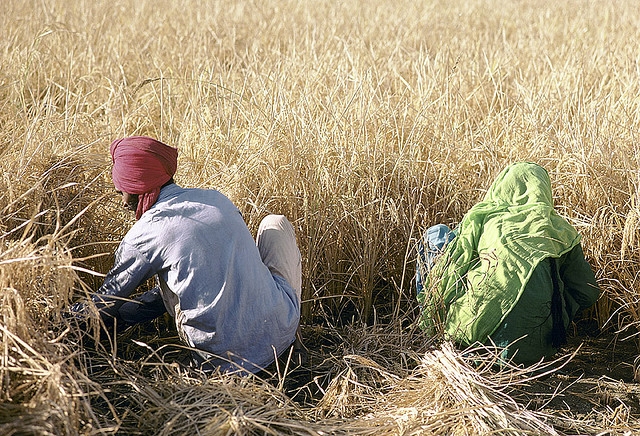Expert: Research on Food Crops Still Underfunded

This week, we asked our Sustainability Roundtable about the growing concern that the world's food supply is in serious danger over the long run. What can the developing and developed countries of Asia do to make their agricultural sector more resilient in the face of future climate shocks? How can these countries cope with a potentially crisis-inducing rise in food prices, growth in population, and increase in demand?
Peter Timmer is a non-resident fellow at the Center for Global Development and was Principal Advisor to the Asia Society Task Force on Food Security. Now retired from teaching, he is the Thomas D. Cabot Professor of Development Studies, emeritus, at Harvard University.
As of now, I think it is important to keep the key issues in focus. The trend of food production is still up, although bad weather last year caused a downturn.
In the short run, the big question is what happens to yields and output this year. Even with normal yields for maize and wheat we will only be able to maintain consumption on trend and will not rebuild stocks, which are very low at the moment. Rice is in much better shape, but it is always important to follow the progress of the Indian monsoon to see how the global rice situation will evolve.
The longer-run trends are troubling as well. Although population growth is slowing everywhere (although not very rapidly in Africa, where fertility rates remain quite high), demand growth is accelerating for two main reasons—the dietary transition in large emerging countries, especially India and China, where more livestock products are being consumed (and the animals are being fed grains to speed their growth), and bio-fuel production that claims a very large share of US maize production and European vegetable oil production. It is not clear that the globe has the natural resources, including water, to meet future levels of demand if these trends continue.
No matter what, we need radically more investment in basic agricultural research, especially on food crops. We have turned the corner on these investments after the 2007-08 food crisis, but many pledges made at that time remain unfunded. We need to turn those pledges into cash, and then turn the cash into research results.
We just had a fascinating session at International Food Policy Research Institute (IFPRI) to discuss these issues. The video will soon be available here.

